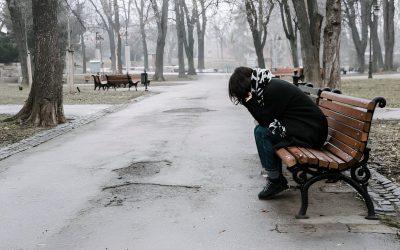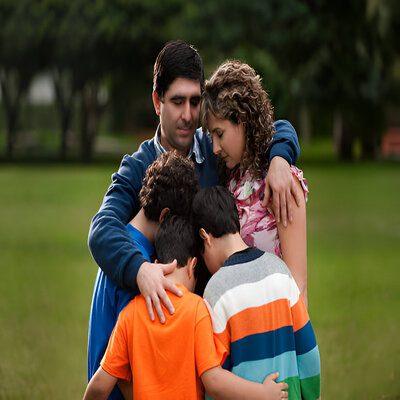When Half of Your World Falls Silent
Losing a spouse leaves a profound void—day-to-day routines, future plans, and even your sense of self all shift in one crushing moment. Amid this unimaginable sorrow, it’s possible to find a gentler way forward, one step at a time. Here, we explore the emotional, psychological, and practical pathways that help transform grief into a lasting tribute of love.
“When I lost my husband, I found a new closeness in the memories we shared. The deeper the pain, the more clearly I felt his love guiding me onward.”
A Quiet Shift in the Heart

Healing After Losing a Spouse
The loss of a spouse is a life-altering experience that reshapes the world as you know it. It brings with it a profound grief that touches every aspect of daily life, leaving one to navigate uncharted waters. Healing from such a loss is not about erasing pain but learning to live alongside it while gradually rebuilding a life that honors the love shared.
Here, we explore the emotional, psychological, and practical steps in the journey of healing after losing a spouse.
The Immediate Shock
In the early days of loss, shock and disbelief are common.
- A Protective Mechanism: Denial often shields the mind from the full weight of grief, allowing you to process the loss gradually.
- The Stillness of the World: Life may feel suspended, as if the rhythm of existence has been upended. This stage is marked by a struggle to reconcile the enormity of the loss with daily realities.
“Grief may change our days, but the love we carry keeps hope alive.” — Patrick R.
Emotional Aftermath
Grief after losing a spouse is multifaceted, encompassing a wide range of emotions:
- Sadness and Longing: The absence of shared routines, intimate conversations, and companionship creates a void that feels impossible to fill.
- Anger and Guilt: Anger at the situation or guilt for moments of relief, especially if the spouse suffered, are natural responses that many find hard to reconcile.
- Loneliness: The quiet of an empty home or the lack of another’s presence can amplify feelings of isolation.
Psychological Challenges
The loss of a spouse is often accompanied by a significant shift in identity.
- Loss of Self: A shared life often intertwines identities. When a spouse is gone, it may feel like a part of yourself is missing.
- Reevaluating Life’s Purpose: Grief prompts deep introspection, questioning the meaning of life, love, and what the future holds.
- Mental Health Impacts: Depression, anxiety, or PTSD can emerge, especially in cases of sudden or traumatic loss. Seeking support for these challenges is essential.
Navigating Social Life
Social dynamics often shift after losing a spouse:
- Awkward Interactions: Friends and family may not know how to approach you, leading to unintentional isolation or strained conversations.
- Reentering Social Spaces: Attending gatherings, especially those tied to memories of your spouse, can feel overwhelming but is an important step toward reintegration.
- Societal Expectations: Pressure to “move on” can feel invalidating, but healing is personal and cannot be rushed.
Steps Toward Healing
-
Allow Grief
Give yourself permission to mourn in your own way. Whether through tears, solitude, or storytelling, each expression of grief is valid. -
Seek Support
Lean on friends, family, and support groups. Grief counseling or therapy can provide tools to process your emotions and rebuild. -
Create New Routines
Adjust daily habits to fit your new reality. Establishing new routines can bring a sense of structure and gradual healing. -
Memorialize Your Spouse
Honor their memory through rituals, such as lighting a candle, visiting meaningful places, or creating a photo album. These acts keep their presence alive in a comforting way. -
Prioritize Self-Care
Physical and mental health are intertwined. Nutrition, exercise, and hobbies can help manage stress and foster a sense of well-being. -
Reclaim Your Identity
Rediscover passions, hobbies, or interests that may have been set aside. This isn’t about leaving the past behind but expanding your sense of self. -
Embrace Change
Life after loss involves accepting a new normal. It’s about integrating the love and lessons of the past into a life that continues to evolve.
Navigating Social Life
Social dynamics often shift after losing a spouse:
- Awkward Interactions: Friends and family may not know how to approach you, leading to unintentional isolation or strained conversations.
- Reentering Social Spaces: Attending gatherings, especially those tied to memories of your spouse, can feel overwhelming but is an important step toward reintegration.
- Societal Expectations: Pressure to “move on” can feel invalidating, but healing is personal and cannot be rushed.
Long-Term Healing
Healing after losing a spouse is a lifelong process:
- Softening Grief: Over time, sharp pain transforms into a quieter, more reflective sorrow. Memories shift from painful reminders to treasured moments.
- Marking Milestones: Anniversaries and birthdays may always carry emotional weight, but they can also become opportunities to celebrate a life shared.
Looking Forward
Moving forward doesn’t mean forgetting. It means finding ways to carry the love of your spouse into your future.
- New Relationships: If and when it feels right, opening your heart again doesn’t diminish past love; it honors your capacity to love and grow.
- Legacy of Love: The bond shared with a spouse becomes a part of your story, shaping who you are and influencing how you live. By embracing life’s new chapters, you honor their memory in every step you take.
Things To Try This Week!
- Write a Love Letter: Take a quiet moment to write a letter to your spouse, sharing a favorite memory or something new you’ve learned about life since their passing.
- Plan a Small Outing: Whether it’s a walk in the park or a visit to a local museum, stepping outside your routine can gently remind you that life continues in meaningful ways.
- Share a Meal with Loved Ones: Inviting close friends or family for a relaxed meal can ease feelings of isolation and bring fresh stories to your table.
Conclusion
The journey of healing after losing a spouse is deeply personal and profoundly transformative. It’s about navigating through grief, rediscovering yourself, and learning to embrace life again—not as it was, but as it can be.
Through time, support, and self-compassion, the love you shared doesn’t fade; it evolves into a guiding presence that helps you rebuild, reminding you of the depth of connection that endures even in absence.
Even as you navigate the profound absence of a spouse, their love can become a warm, guiding presence in your life.
Our cherish section offers keepsakes, supportive ideas, and gentle reminders that the bond you shared continues to shape your journey—allowing you to honor their memory with both tenderness and hope.
Romantic Relationships: Embracing the Depth of Love
Romantic partnerships shape our hearts and futures, intertwining two lives into one shared path. Explore supportive resources and thoughtful keepsakes designed to honor, heal, and celebrate the profound connections we forge in love.
More Reflections, More Growth
Loss is complex, and the road to healing is different for everyone. These reflections offer insight, support, and guidance as you navigate this journey.
Healing After Heartbreak: Understanding the Link Between Grief and Heart Disease
Grief can have a significant impact on your heart health, leading to conditions like Broken Heart Syndrome. This article explains the link between emotional distress and heart disease and offers tips for protecting your heart while navigating the difficult journey of grief.
Becoming Whole Again: Rediscovering Yourself Post-Heartbreak
Heartbreak reshapes your identity and opens a door to profound self-discovery. This guide helps you embrace solitude, reconnect with your passions, and grow into a stronger, more authentic self.
From Heartache to Renewal: Healing After a Relationship Ends
Healing after a relationship ends is a journey of self-discovery and growth. This guide offers practical steps to process grief, rebuild confidence, and embrace a fulfilling new chapter.
When Love Hurts: Grieving the End of a Relationship
Heartbreak grief is a profound response to love lost. This guide explores its emotional and psychological impact, offering compassionate strategies for healing and renewal.
Steady Hearts: Supporting a Partner Through Grief
Supporting a grieving partner requires empathy, patience, and care. This guide provides compassionate strategies for emotional and practical support while nurturing your relationship.
When Love Ends in Grief: Navigating Heartbreak and Renewal
When love ends, grief reshapes life in profound ways. This guide explores compassionate strategies for navigating heartbreak, healing, and embracing new beginnings.
Romantic Relationships: Coping with the Loss of a Partner
Coping with the loss of a partner is deeply personal. This guide offers compassionate advice to honor their memory, navigate grief, and rebuild your life with resilience.
Grieving a Life Left Behind After Divorce
Divorce isn’t just the end of a relationship—it’s the loss of a shared future and a profound life shift. Learn how to grieve the life left behind and rebuild a hopeful new chapter.
The Emotional Toll of Separation
Separation is more than a life change—it’s an emotional journey filled with grief, self-discovery, and transformation. Learn strategies to navigate this difficult transition and build a hopeful new chapter.
Explore Journeys of Healing and Solace:
Discover dedicated spaces that offer understanding, guidance, and connection through grief. From the loss of loved ones to life’s challenging transitions, each category provides a pathway to reflect, connect, and find peace in shared experiences.


























